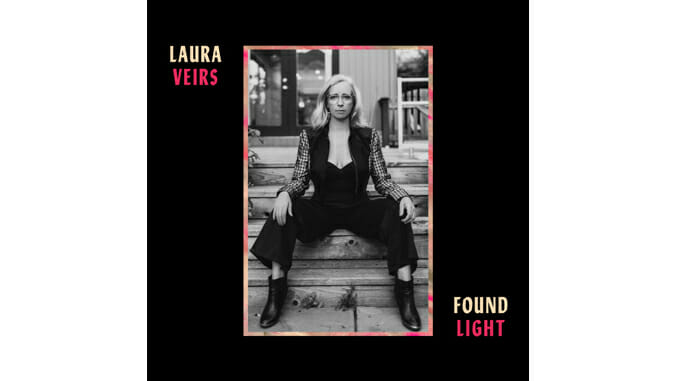Laura Veirs Finds Ways to Be Free on Found Light
The folk musician’s new album is a stirring song cycle that deals in the beauty and agony of transformation

Found Light is Laura Veirs’ 12th studio album, and in many ways, it marks a creative departure. Shortly after her 2020 release My Echo, which famously explores her painful separation from her longtime husband and producer Tucker Martine, Veirs announced a new album was already in the works without his involvement. Instead, she chose to take on for herself a side of songmaking that Martine, who also produced Veirs’ collaboration with Neko Case and k.d. lang, previously handled for her. Marking Veirs’ first-ever release with a production credit, Found Light represents a new step in not only Veirs’ personal life, but also her career at large, a turn that has led her to consider it a kind of debut.
At the helm, Veirs explores her emergence from that cocoon with a stirring song cycle that deals in the beauty and agony of transformation. The album is also her first time playing guitar and singing at the same time on tape, and Found Light uses that creative process to strip folk notions to their core and reconstruct them, often reminiscent of Vashti Bunyan and Doran’s freak-folk experimentations. Recorded at Jackpot Studios in Portland with collaborators in Death Cab for Cutie’s Dave Depper, co-producer Shahzad Ismaily, and friends Sam Amidon and Karl Blau, the album illustrates Veirs’ recovery across its 14 tracks with a deft and assured hand.
My Echo inhabited the dissolution of a partnership in real time, but Veirs is quick to establish that Found Light focuses instead on the tender navigation of healing that comes after. “Autumn Song” is a gentle invocation to open the album, calling for “ways to be free” and “ways to let go” amidst the chill of a summer’s end. Seemingly starting from the end of the process, the track sets the stage for an empathy-driven retelling, a relationship retrospective framed with kindness at its core. This is emphasized in “Ring Song,” where Veirs recalls getting rid of her wedding ring at a pawn shop with the confession, “I felt bad, but I also felt a weight go flying.”
Repetition forms a kind of narrative arc across Found Light, as if each song carries with it a mantra for the journey to recovery. In “Naked Hymn,” this phrase is “touch has a memory,” a sensual recollection of pleasure laced through the lyrics with alto saxophone, the smell of pine and the taste of pomegranates. On lead single “Winter Windows,” a turbulent reckoning that navigates the demands of motherhood in divorce, Veirs returns to “the lighting I can do.”
-

-

-

-

-

-

-

-

-

-

-

-

-

-

-

-

-

-

-

-

-

-

-

-

-

-

-

-

-

-

-

-

-

-

-

-

-

-

-

-








































